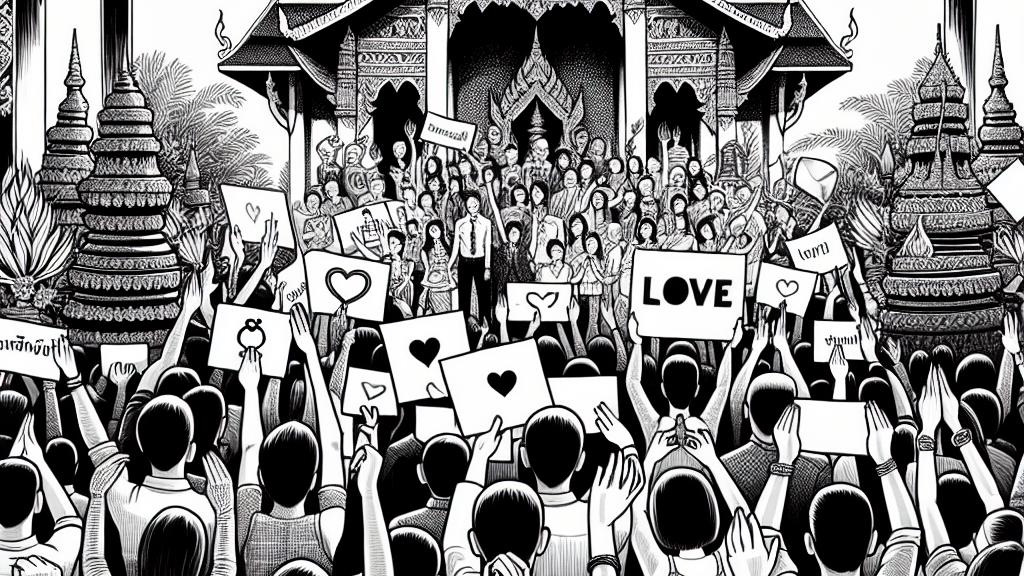Thailand Legalizes Same-Sex Marriage: A Transformative Moment for LGBTQ Rights
Overview
- Thailand boldly becomes the first Southeast Asian nation to embrace marriage equality.
- The groundbreaking legislation introduces gender-neutral terms and grants vital adoption rights.
- Widespread public support reveals a significant societal shift towards LGBTQ acceptance and love.

A Historic Leap: Context and Significance
On September 24, 2024, Thailand boldly stepped into a new era by legalizing same-sex marriage, cementing its position as a trailblazer for LGBTQ rights in Southeast Asia. This landmark decision was sealed with the royal approval of King Maha Vajiralongkorn, a significant relief for activists who have dedicated years to this cause. For over a decade, advocates faced substantial obstacles while navigating a landscape often resistant to change. In Thai society, where vibrant LGBTQ expressions coexist with deep-rooted traditional values, this shift signals a transformative moment. Public opinion has demonstrated a remarkable evolution toward acceptance, with surveys indicating broad support. For many, this moment isn't merely about legalities; it symbolizes love recognized and valued equally, making it a powerful testament to Thailand's cultural progression.
Legal Framework and Impact of Change
The newly enacted law ingeniously integrates gender-neutral language, replacing archaic terms like 'husband' and 'wife' with inclusive wording. This legislative innovation does more than allow same-sex couples to wed; it extends critical rights involving adoption and inheritance, ensuring that families formed through love are equally protected under the law. Imagine couples like Apiwat and Sappanyoo, who have waited years for this moment to tie the knot—their union is now not only recognized but celebrated. This progressive leap not only enhances family structures but also underscores Thailand's commitment to dignity and equality. Furthermore, as Thailand navigates this new chapter, it sets an inspiring example for neighboring countries still grappling with similar challenges. This evolution of law could ideally spur others to reassess their own policies and attitudes, fostering a ripple effect of love and acceptance throughout the region.
Global Perspectives: A Symbol of Hope and Change
As Thailand confidently strides forward, the global landscape reveals a complex picture of attitudes towards same-sex marriage. For instance, in Sweden, a staggering 92% of the population supports marriage equality, illustrating a society that has fully embraced inclusivity. Conversely, Nigeria shows a starkly different reality, with only 2% in favor, highlighting the harsh realities that LGBTQ individuals still endure. Such contrasts not only emphasize the challenges that remain but also amplify the importance of Thailand's groundbreaking ruling. It stands as a beacon of hope, suggesting that change is not only possible but necessary. As advocates worldwide look toward Thailand's bold step, they find not just encouragement but a direct challenge to the old ways of thinking. Every wedding that occurs under this new law sends out a powerful message: love knows no bounds, and the right to marry transcends societal limits, paving the way to a more inclusive future for everyone.

Loading...